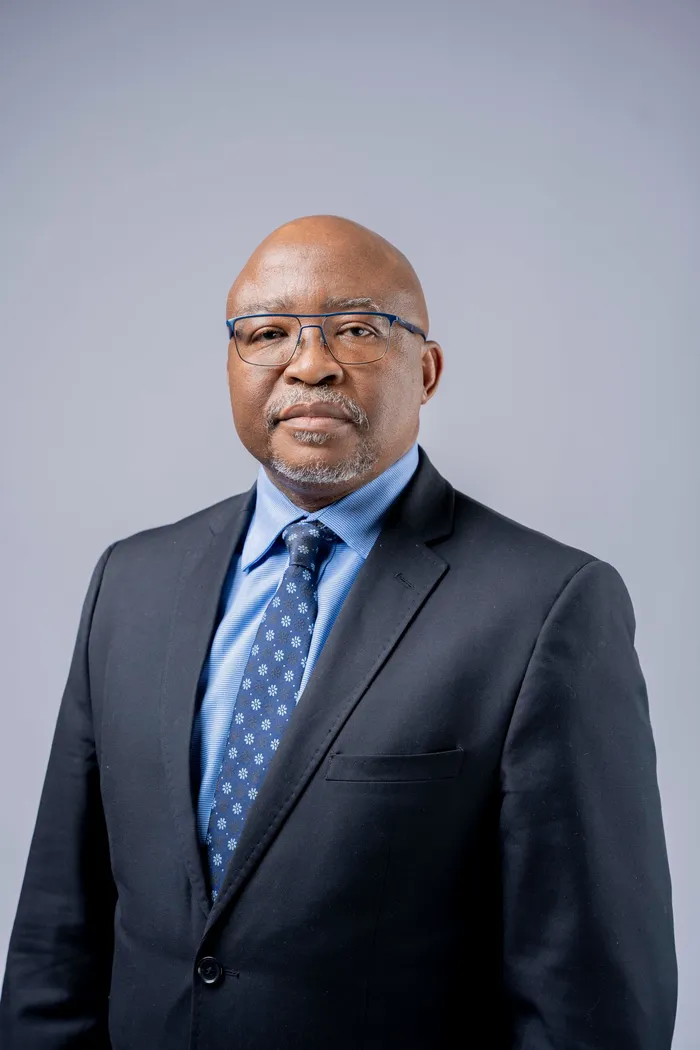The impact of fraud, waste and abuse on medical scheme members

Managing Director at the Board of Healthcare Funders (BHF). Dr Katlego Mothudi believes that medical aid scheme members are the first line of defence against fraud. If they are empowered with the right information, they can help to identify fraudulent or abusive practices. Medical schemes should launch educational campaigns that inform members about how to scrutinise their healthcare bills and understand their benefits better. Picture: Supplied.
South Africa's medical schemes industry is taking a strong, zero-tolerance stance against fraud, waste, and abuse - practices that are undermining the healthcare system.
Fraudulent claims, unnecessary procedures, and mismanagement of resources are costing billions of rand, inflating healthcare costs, and putting additional financial strain on members. Instead of supporting essential treatments and care, these resources are being misused and misallocated, writes Dr Katlego Mothudi, Managing Director at the Board of Healthcare Funders (BHF).
AT the recent BHF Healthcare Collab Hub, industry leaders highlighted the need for immediate reforms to curb these harmful practices and safeguard the future of medical schemes. As healthcare costs continue to rise, tackling fraud (deliberate deception), waste (inefficient use of resources), and abuse (excessive or improper use of services) is essential for ensuring that medical schemes remain affordable and sustainable. Without swift action, members may face higher premiums, with fewer resources available for the critical care they depend on.
Fraud, waste, and abuse (FWA) in the healthcare sector is not just a regulatory issue or an administrative headache, but a direct assault on the wellbeing of medical scheme members. Every fraudulent claim, and every misuse of resources, drains the pool of funds that are meant to ensure that individuals have access to necessary healthcare services.
For millions of members, the repercussions of unchecked FWA include increased premiums, reduced benefits, and the potential for schemes to become financially unsustainable. It is a burden borne by all members, regardless of whether they have directly engaged with healthcare services or not.
The healthcare industry, specifically medical schemes and their administrators, has a significant responsibility to address this problem head-on. Their duty extends beyond managing funds - they are custodians of a system designed to protect individuals' access to essential healthcare services.
If these schemes fail to adequately combat FWA, the entire medical scheme ecosystem becomes compromised, undermining trust in healthcare funding and leaving members exposed to higher costs and decreased quality of care.
The scale of FWA in the medical schemes sector is staggering. According to industry reports, billions of rands are lost annually to fraudulent activities. Whether through inflated billing, unnecessary procedures, or outright false claims, these actions take funds directly from the pockets of members.
Medical schemes are forced to increase premiums to cover these losses, meaning that honest, hardworking individuals are paying more for their healthcare – not because of rising medical costs, but because of the unethical behaviour of a few. Moreover, the administrative costs associated with managing and investigating FWA claims are significant.
These costs divert funds that could otherwise be used to enhance member benefits or improve healthcare services. The long-term impact is even more worrying. If left unchecked, FWA can destabilise the entire medical scheme system. Ultimately, it is the members who suffer the most, facing financial uncertainty and diminished healthcare support when they need it most.
The healthcare industry has both the tools and the responsibility to take decisive action against FWA. Key stakeholders, including medical schemes, administrators, and regulatory bodies, must collaborate to develop comprehensive strategies that can curtail the losses associated with these unethical practices.
The industry is already moving towards the use of automated systems and data analytics to detect unusual patterns and potential fraud. However, the systems need continuous improvement to keep up with the evolving tactics of fraudsters. Schemes should invest in advanced algorithms and artificial intelligence (AI) tools that can analyse claims in real-time, flagging high-risk transactions before they are paid. Machine learning models, for instance, could identify patterns that suggest fraudulent behaviour, such as repeated claims for the same procedure or suspiciously high billing from certain providers.
This not only helps in early detection but also ensures that members who follow the rules aren’t unfairly penalised. It is essential, however, that these systems remain transparent to avoid unintended biases or discriminatory practices.
The fight against FWA cannot be won by medical schemes alone. There needs to be greater collaboration between schemes, healthcare providers, and regulatory bodies.
Related Topics: